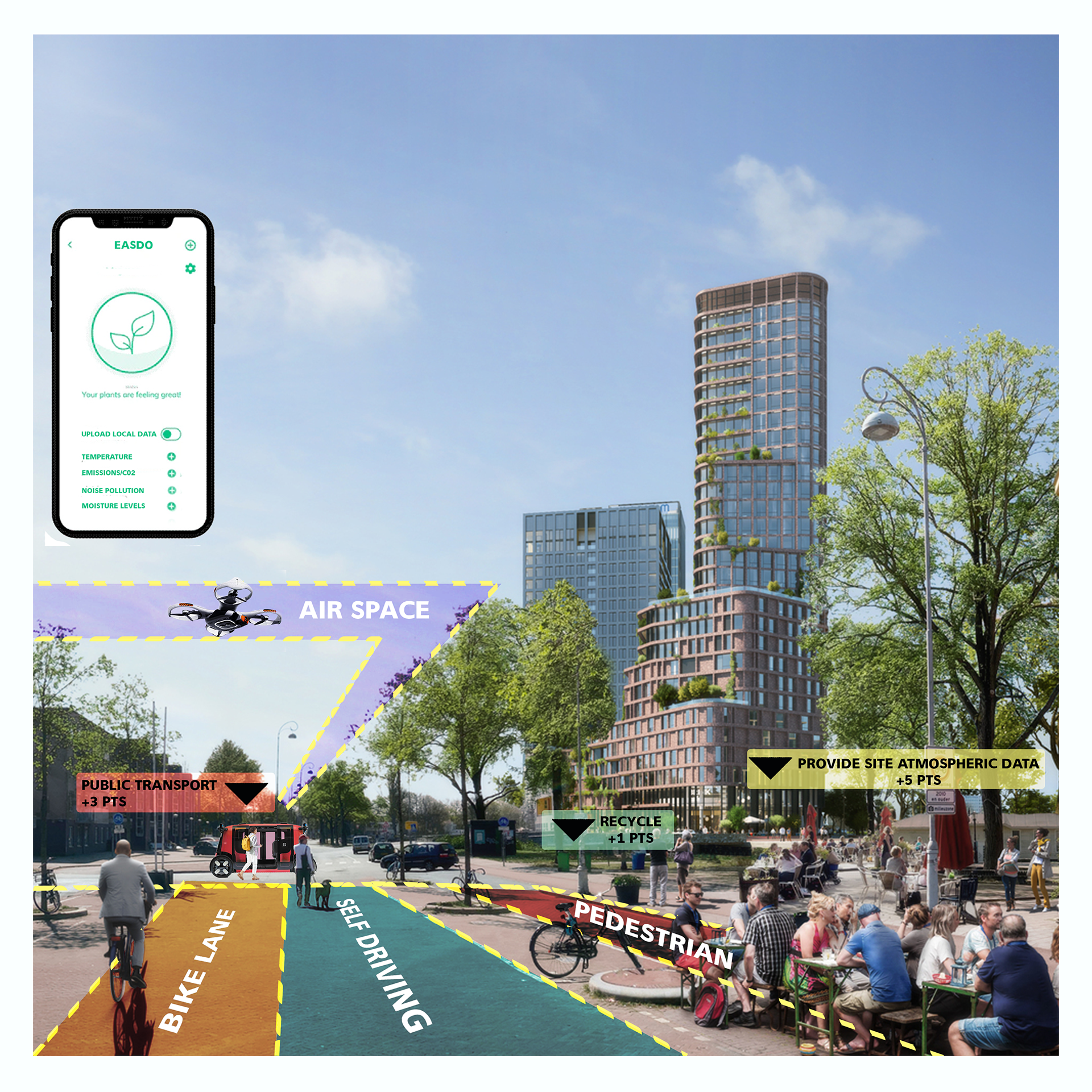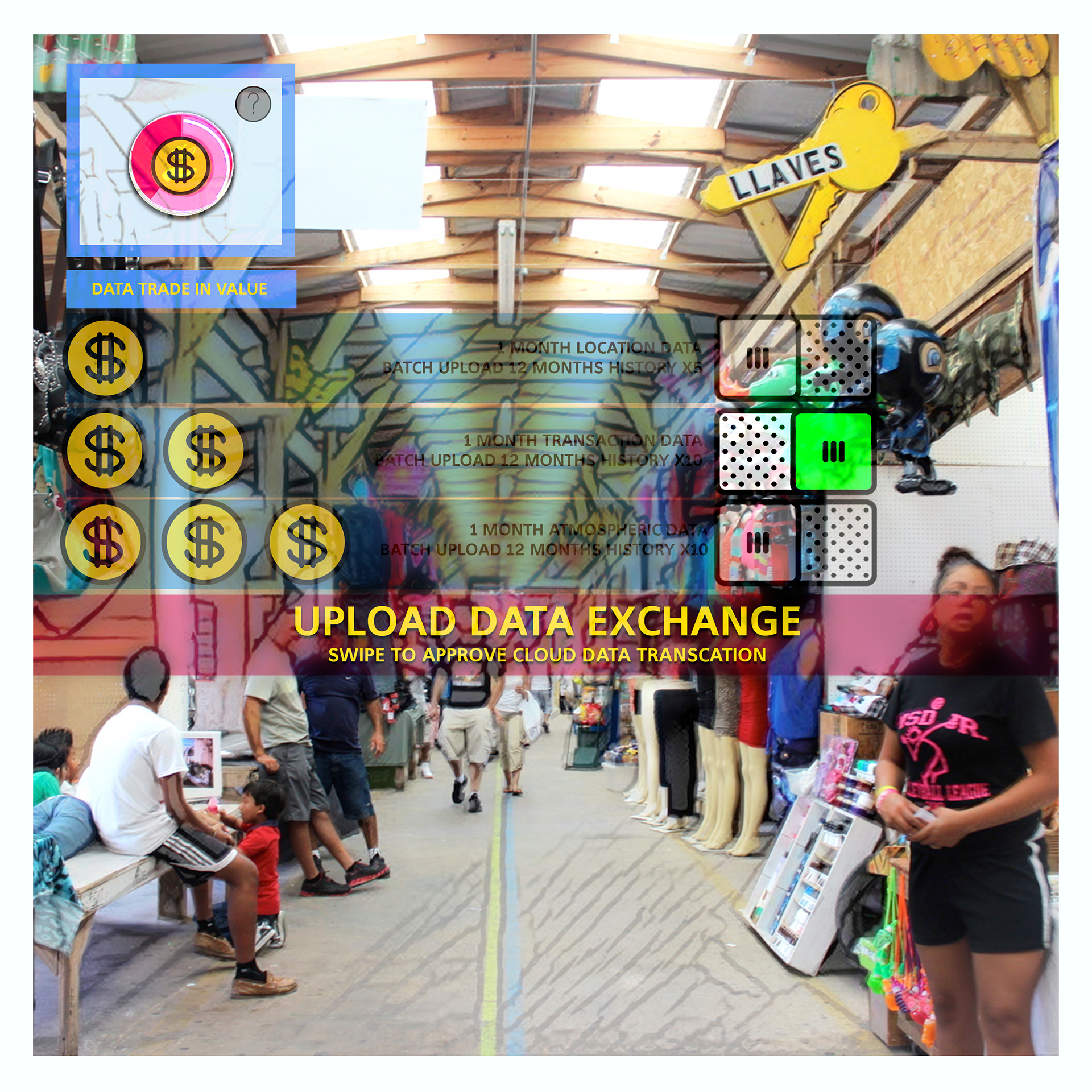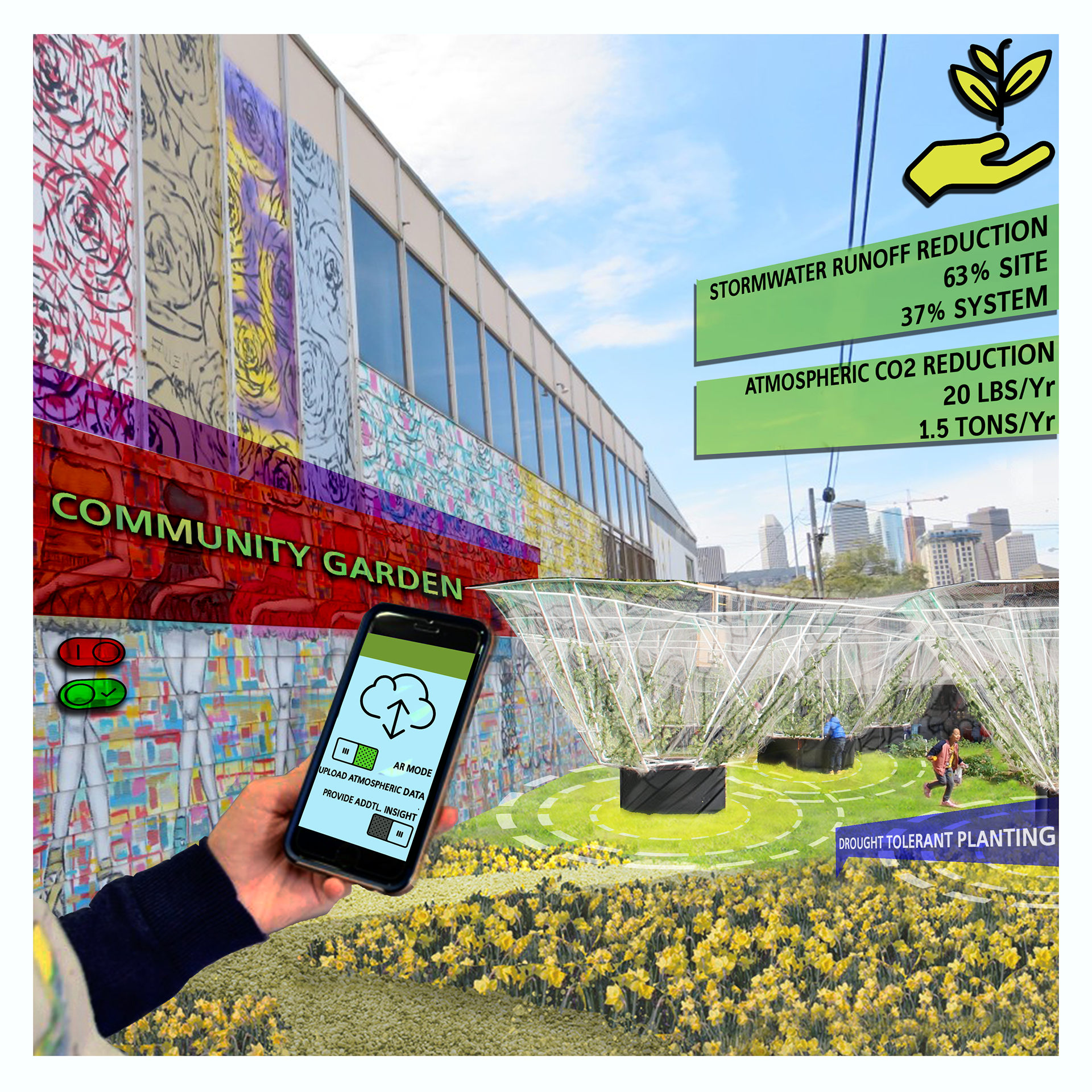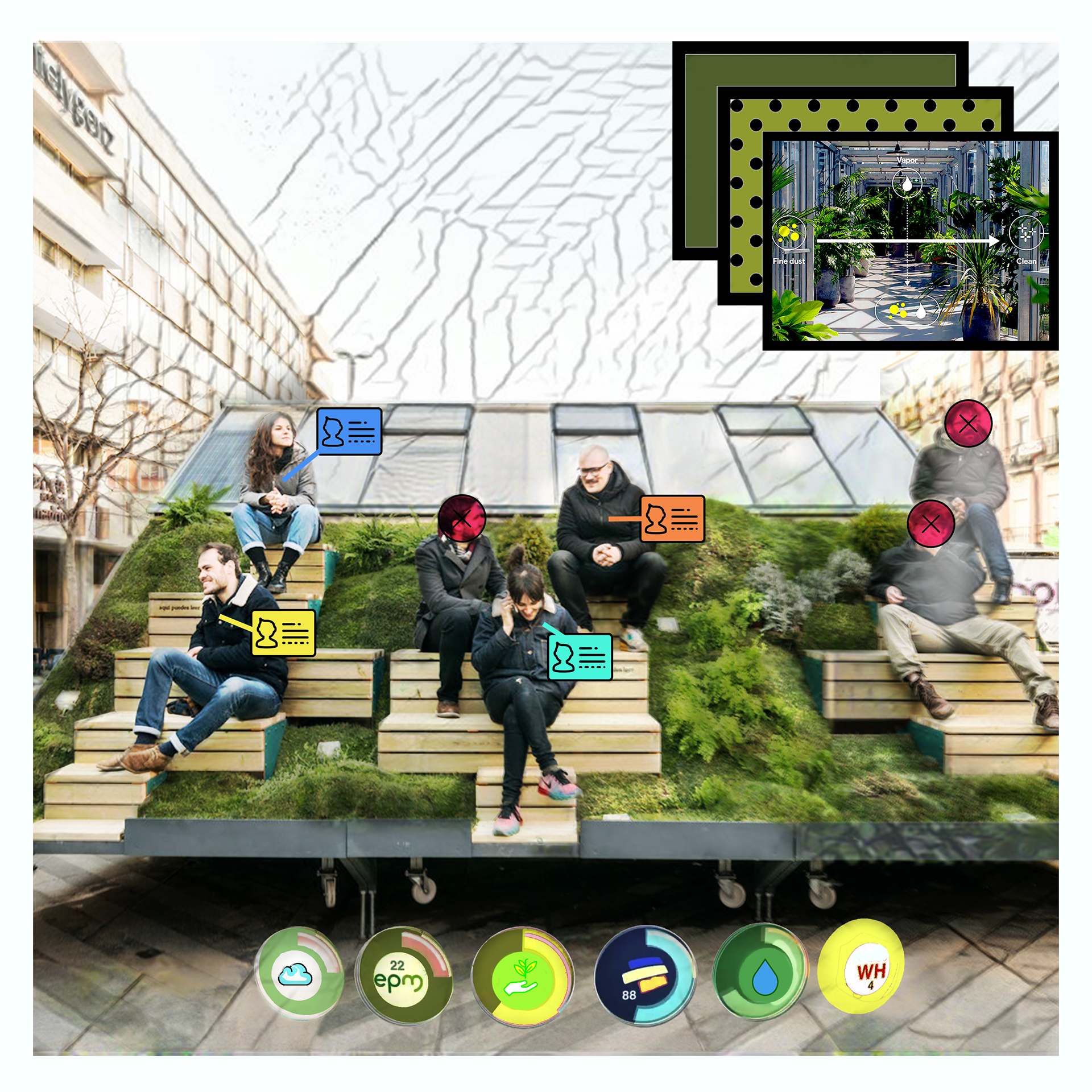Research Proposal: Community-driven Vertical Stack Integration
Concept: EasDO is a fictional neighborhood in Houston, that exemplifies the failures of suburban sprawl. The neighborhood is situated on a site that includes industrial, residential, and high rise buildings. Lack of zoning regulations and sprawl is evident. The neighborhood is inefficient, uneconomical, and unsustainable. EasDO’s aging architectural typology, proximity to the city’s core, and the complex cultural tapestry of the city were promising. Houston is one of the fastest-growing cities in the United States, it is a growing technological hub, and ranks first in the most diverse cities in America. I saw this as the perfect sample population for analyzing large urban data-sets.
Leveraging EasDO's diverse data-sharing framework long-term proved to be extremely valuable. IBM, Erickson, Tesla, and Samsung signed a data-sharing deal with EasDO. These corporations provided the infrastructure in exchange for citizens collectively using the technology to quantify their data. EasDO became a testing ground for social, sustainable, and urban experiments. This was a grassroots effort to become the first city with integrated-intelligence.


Failures in civic engagement were due to the historically predatory practices in data-mining. To change this, residents were offered personal “data boxes” to maintain full autonomy and ownership of their data. In return, individuals who uploaded their data would be financially rewarded. In this way, people could directly benefit from the inherent value of their daily actions. As a result, the value of the data increases as user participation increases. Public sensors are distributed wherever the community deems acceptable. Areas of concern can be voluntarily exempt, creating dark zones. Additional sensors are added to smartphones to increase sensing capabilities.


Public and private data management tools create a network of real-time data. If data can validate value, action will follow. Improved infrastructure, economic, and sustainability metrics would prompt additional investment. Citizens maintain agency in decision making by participating in higher-level urban proposals. Houston’s lack of zoning opens up possibilities for mixing and matching spaces and creating new futures. Residents can create agency and value in their spaces.